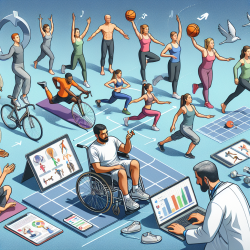Individualized Education Program (IEP) planning and meetings are critical components of providing appropriate educational support for students with special needs. For mental health professionals working in schools, mastering the intricacies of IEP processes is essential to ensure that each student receives tailored interventions that foster their academic and personal growth. This blog will explore key strategies for effective IEP planning and meetings, helping you navigate these important responsibilities with confidence and expertise.
Understanding the IEP Process
The IEP process is a collaborative effort involving educators, parents, therapists, and other specialists. The primary goal is to create a comprehensive plan that addresses the unique needs of each student. Here's a step-by-step overview of the process:
- Referral and Evaluation: The process begins with a referral, often initiated by a teacher or parent, followed by a comprehensive evaluation to determine the student's eligibility for special education services.
- IEP Meeting: If the student is found eligible, an IEP meeting is scheduled. This meeting includes the student's parents, teachers, therapists, and other relevant professionals.
- Developing the IEP: During the meeting, the team collaborates to develop a customized plan that outlines the student's current performance, goals, services, and accommodations.
- Implementation: Once the IEP is finalized, it is implemented, and the student begins receiving the outlined services and supports.
- Review and Revision: The IEP is reviewed at least annually to assess the student's progress and make necessary adjustments.
Effective Strategies for IEP Planning and Meetings
As a mental health professional, your expertise is invaluable in the IEP process. Here are some strategies to enhance your effectiveness:
1. Build Strong Relationships
Establishing trust and rapport with students, parents, and colleagues is crucial. Effective communication and collaboration foster a positive environment where everyone's input is valued. Regularly engage with parents and teachers to stay informed about the student's progress and challenges.
2. Prepare Thoroughly
Before the IEP meeting, review the student's records, assessment results, and any relevant data. Identify the student's strengths, areas of need, and potential goals. Being well-prepared allows you to contribute meaningful insights and recommendations during the meeting.
3. Utilize Data-Driven Decision Making
Use data to inform your decisions and recommendations. Collect and analyze data on the student's behavior, academic performance, and social-emotional development. Data-driven insights provide a solid foundation for setting realistic and measurable goals.
4. Advocate for Comprehensive Services
Ensure that the IEP includes a range of services and supports tailored to the student's needs. This may include academic interventions, behavioral strategies, counseling, and related services such as speech or occupational therapy. Advocate for the inclusion of telehealth options when appropriate, as they can provide flexible and accessible support.
5. Foster a Collaborative Atmosphere
Encourage open dialogue and active participation from all team members during the IEP meeting. Value the perspectives of parents, teachers, and other specialists. A collaborative approach ensures that the IEP is well-rounded and addresses all aspects of the student's development.
6. Follow Up and Monitor Progress
After the IEP is implemented, regularly monitor the student's progress toward their goals. Schedule follow-up meetings with parents and teachers to discuss any concerns and adjust the plan as needed. Continuous monitoring and adjustment are key to the student's success.
Conclusion
IEP planning and meetings are integral to providing effective support for students with special needs. By building strong relationships, preparing thoroughly, utilizing data-driven decision-making, advocating for comprehensive services, fostering collaboration, and monitoring progress, mental health professionals can significantly contribute to the success of their students. Embrace these strategies to navigate the IEP process with confidence and make a meaningful impact on the lives of the students you serve.










